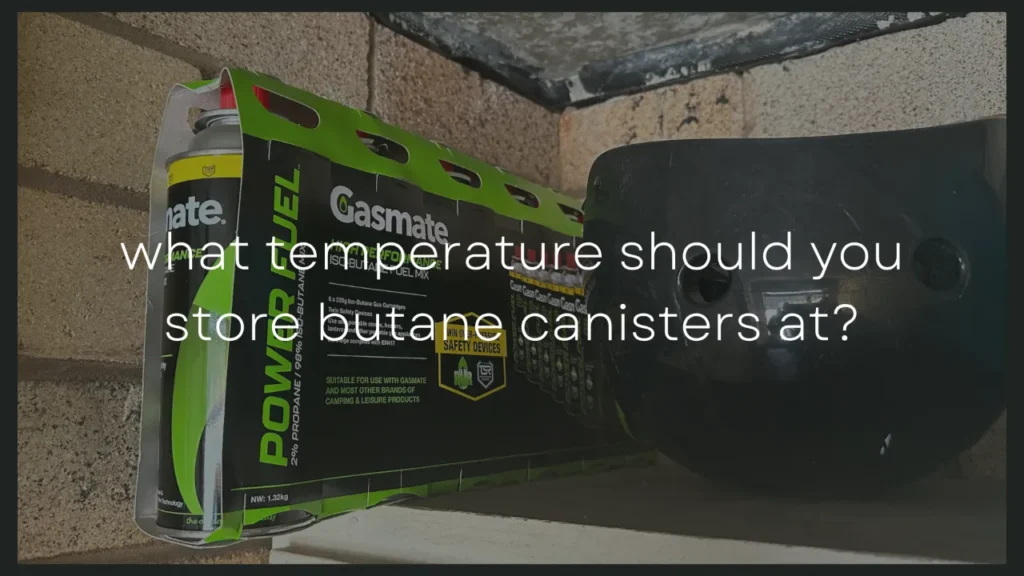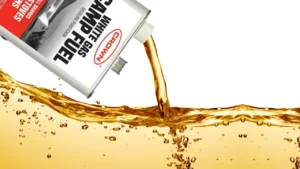When camping, I always bring plenty of butane canisters for my stove. I’ve seen videos recently of butane canisters exploding and I wondered what the safe storage temperatures are for them to prevent an explosion?
You should store butane canisters at temperatures below 122°F (50°C). Anything above this causes the butane to heat up too much and pressurize the canister walls which can lead to failure of the canister allowing the gas to escape. However, butane it will only autoignite at 761°F/405°C.
Butane only freezes at -138.25ºC/-216.85ºF but it becomes ineffective at 28.4°F/-2°C so you should store it colder than this in winter.
Understanding the correct temperature range for storing butane canisters can help you prevent an explosion in your home or car and ensure that it works effectively in the cold.
Temperature Range for Storing Butane Canisters
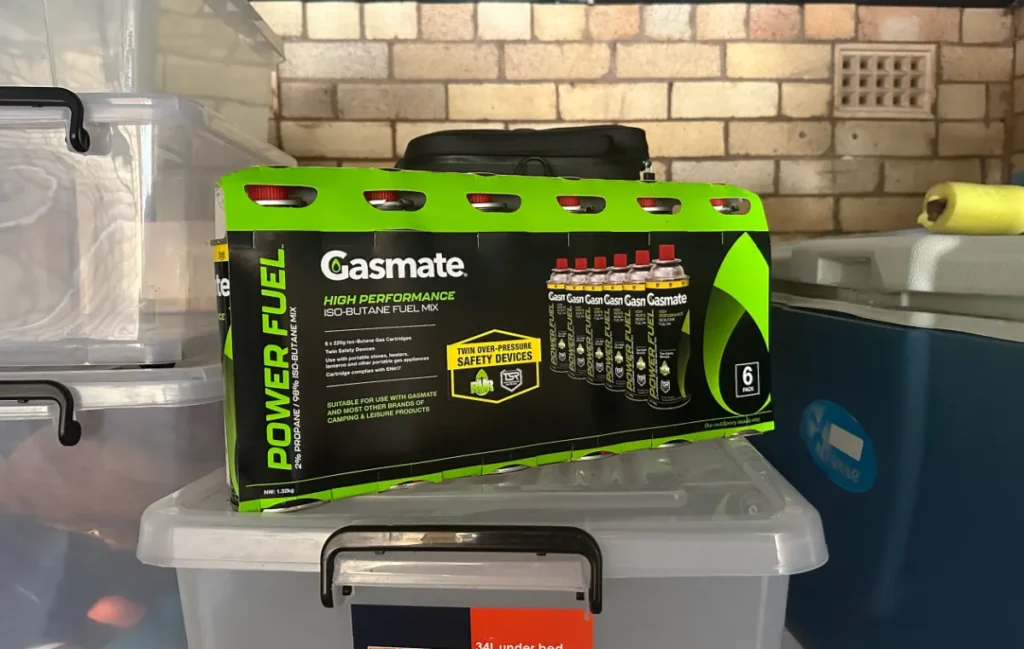
Most butane manufacturers recommend storing butane at temperatures below 122°F (50°C).
However, some recommend temperatures even lower than this. Chef Master, for example, states that you should store their butane canisters at temperatures no higher than 110ºF/43°C.
Here’s a YouTube video showing how easily butane can explode when heated to boiling point with a blowtorch:
If you live or camp in an area that gets below freezing in winter, you should store your butane canisters in a place that’s protected from the cold but still well-ventilated.
You can use a cooler to keep things warm in the winter and stop them from freezing and this can be a great way to help regulate the temperature of your butane canisters.
When butane reaches temperatures below 28.4°F/-2°C, it becomes ineffective as a fuel source and you might struggle to light your stove or heater because it can struggle to form a vapor.
A great tip I found when camping in the winter is to wrap my butane canister in a thick sweater or blanket overnight so that it’s warm enough to use for breakfast.
Can You Store Butane Canisters In The Garage, Your Car or Tent In Summer?
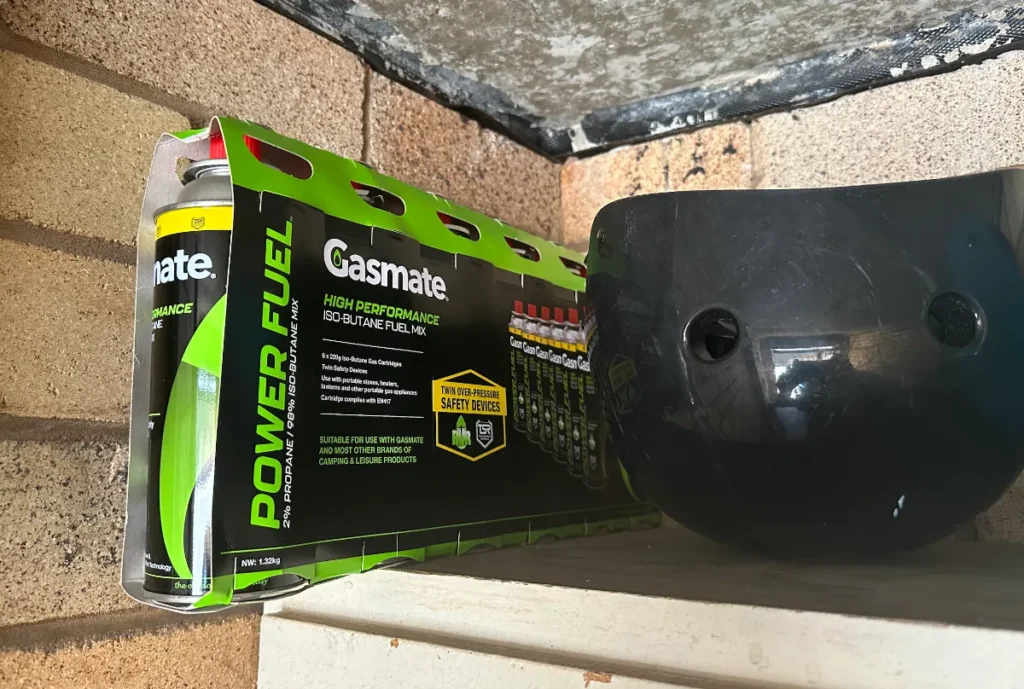
When not camping I store my butane canisters in my garage and when I'm camping I simply keep them in the car or sometimes I'll keep them in or around the tent.
We all know how hot cars and tents can get on a hot summer's day.
You can store butane canisters in the garage or your car in summer. However, you should monitor the temperature closely because anything above 122°F (50°C) causes the gas to becom volatile and pressurize the canister walls, putting it at higher risk for explosion.
It’s unlikely for butane to ignite by itself in a car or garage because its autoignition point is 761°F/405°C.
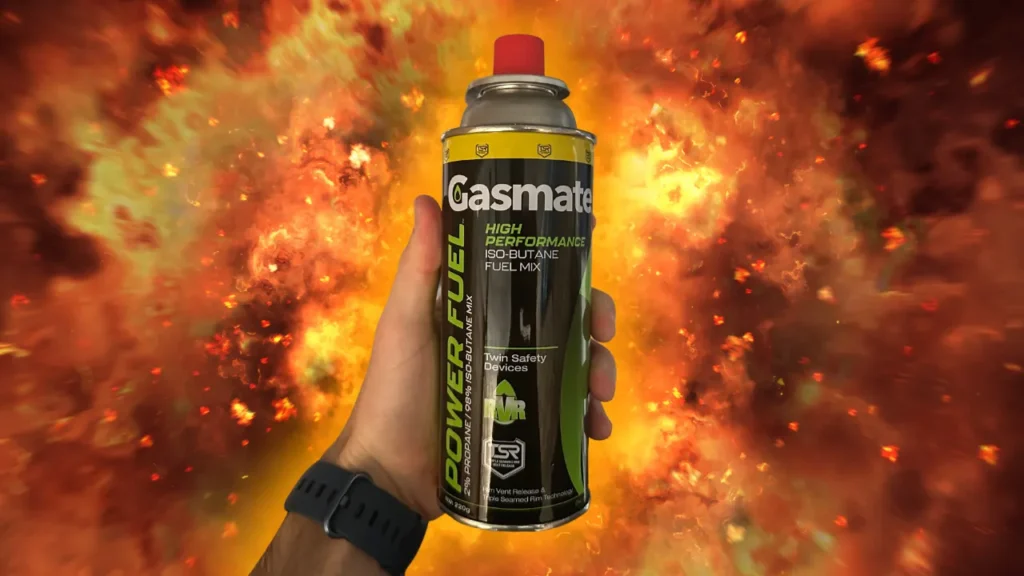
What usually happens is that if your butane canister gets too hot then pressure will build up. Too much pressure will cause safety points on the can to automatically deform and release the butane gas in the can.
This stops the can from completely exploding as the gas will be let out before it reaches this pressure point.
If the happens then it means whatever space you've stored your butane in will now have butane in it and it needs to be aired out. Butane is odorless and can be incredibly dangerous to breath in large quantities, so be extremely careful.
The average garage isn’t insulated or climate controlled and is typically 10°F warmer than the outside. This means that on a hot 95°F day, it will reach 105°F, which is below the highest recommended storage temperature and safe.
However, on days hotter than 100°F (which would make your garage around 110°F – the maximum recommended storage temperature by Chef Master), you should move your butane canisters to a cooler place.
When your car’s parked in the sun for an hour on a hot 100°F day, the cabin can reach 116°F (above Chef Master’s recommended storage temperature but just below what many other manufacturers recommend).
Parking your car in the shade for an hour in 100°F weather will keep the interior temperature the same, making it much safer.
This proves that if you have butane canisters in your car, park it in the shade, keep the canisters on the floor (where it’s usually cooler) and crack a window in case the can leaks.
Safe Temperatures for Using Butane
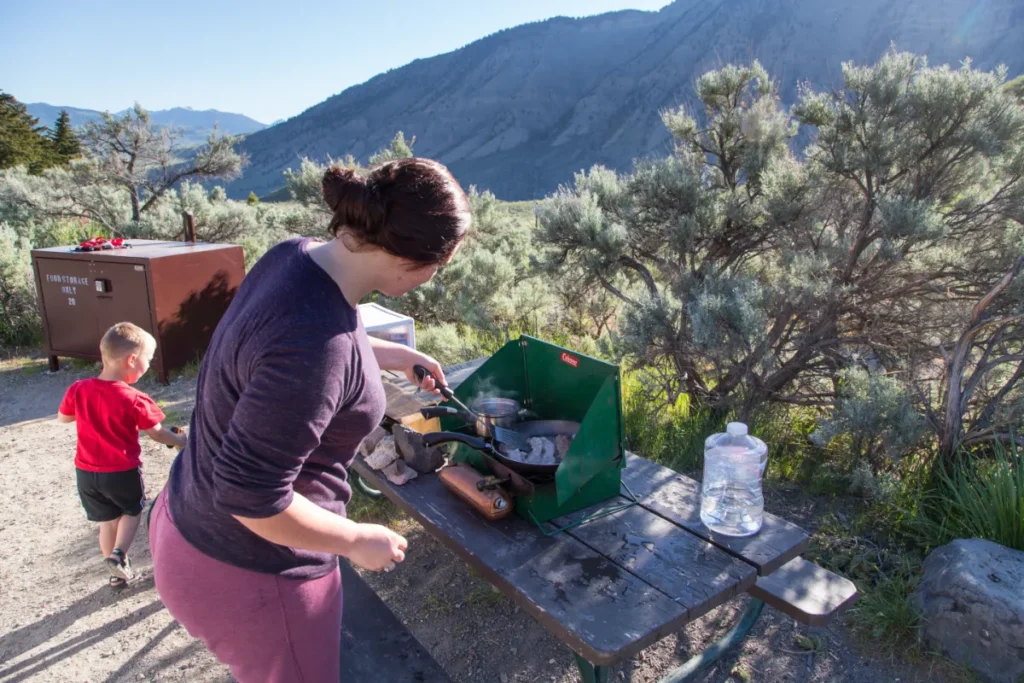
When using a butane stove, try and do so in temperatures lower than 122°F (50°C) and in the shade. This will make the butane in the canister less likely to become volatile and cause itself and the stove to explode.

